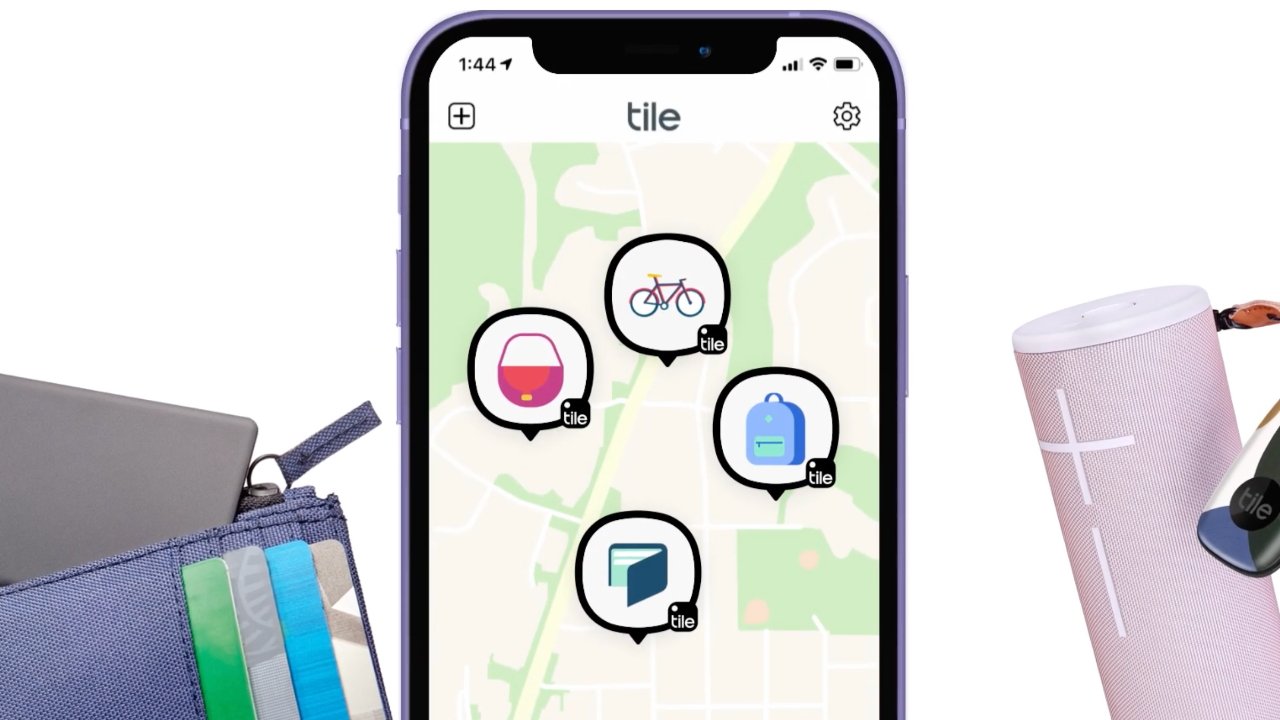A new Anti-Theft Mode for Tile trackers has been launched, that will completely prevent it from being found by anyone else than the user if the owner has registered photo ID with the company.

All of the recent attention on the stalking possibilities of small tracking devices arose because of Apple's launch of its AirTags -- and all of its built-in anti-stalking features. In the ensuring controversy, though, long-time tracking company Tile announced it would be adding some anti-stalking measures.
A year later, those slight initial measures have now been added to, with Tile at the same time also claiming that Apple's safety measures have actually reduced the effectiveness of using trackers for security.
"Unlike other Bluetooth trackers on the market, namely AirTags," says the company in a press release, "Tile does not notify nearby smartphone users when an unknown Bluetooth tracker is traveling with them."
"Some competitor products go as far as to issue an audible beep once the tracker has been separated from its owner," it continues, "making it clear that a tracker is present and enabling thieves to find it with precision."
New Anti-Theft Mode
Tile's initial response to stalking controversy was to create an app called Scan and Secure, which allowed iPhone and Android users to scan for nearby Tile trackers -- once they suspected one was present.
Tile's new release, though, adds an optional Anti-Theft Mode that specifically prevents that same app from finding anything.
"This is accomplished by making Tile Bluetooth trackers operating in Anti-Theft Mode undetectable by Scan and Secure," says the press release. Tile users can activate Anti-Theft Mode on any Tile tracker in use now, including Tile-enabled partner products."
Tile CEO Chris Hulls argues in a blog post that there are reasons the company is "taking a different approach."
"When news coverage on the stalking risks of using Bluetooth trackers exploded," writes, "Tile immediately jumped into action to build protections for consumers, even those who are not our customers."
Describing "well-intentioned but hasty changes made by Apple, us at Tile, and others," he claims "current anti-stalking features, practically speaking, don't work."
"To better deter stalking, we need to increase the likelihood that stalkers are caught and then dramatically up the consequences when they are," says Hulls. "Today the punishment for stalking is often a slap on the wrist."
Tile's solution to stalking
By default, Tile trackers will remain discoverable by the Scan and Secure app. If someone wants to enable the new Anti-Theft Mode, they have to:
- Provide government-issued ID to verify their identity
- Allow Tile to share the data with law enforcement
- Agree to pay $1 million if they are later convicted of stalking using Tile devices
Tile does not state who gets the $1 million. While that does "dramatically up the consequences" for a stalker, it's less clear how it in any way increases the likelihood they will be caught.
Presumably the thinking is that they can be tracked through that government ID, much as Apple can track AirTags back to their owners. However, that only works at best when a victim physically discovers the Tile.
Even then, it's not clear that the victim is expected to be able to do anything. It appears Tile's efforts center on fining the stalker once everyone else from the victim through law enforcement and the courts, have found them.
Hulls also undermines the apparent benefit of being able to hide Tile devices from Tile's own Scan and Secure feature, by saying the firm is "shocked" at how little it is used.
"Out of our millions of active Tile users, we see the feature being used on average 52 times a day across our entire iOS and Android user base -- this is not a typo!" he says.
That would suggest, though, that users either don't know about the feature -- or have had no reason to suspect they are being tracked in the first place.
The new Tile Anti-Theft Mode has begun rolling out to users, and should be available to all customers within weeks.
